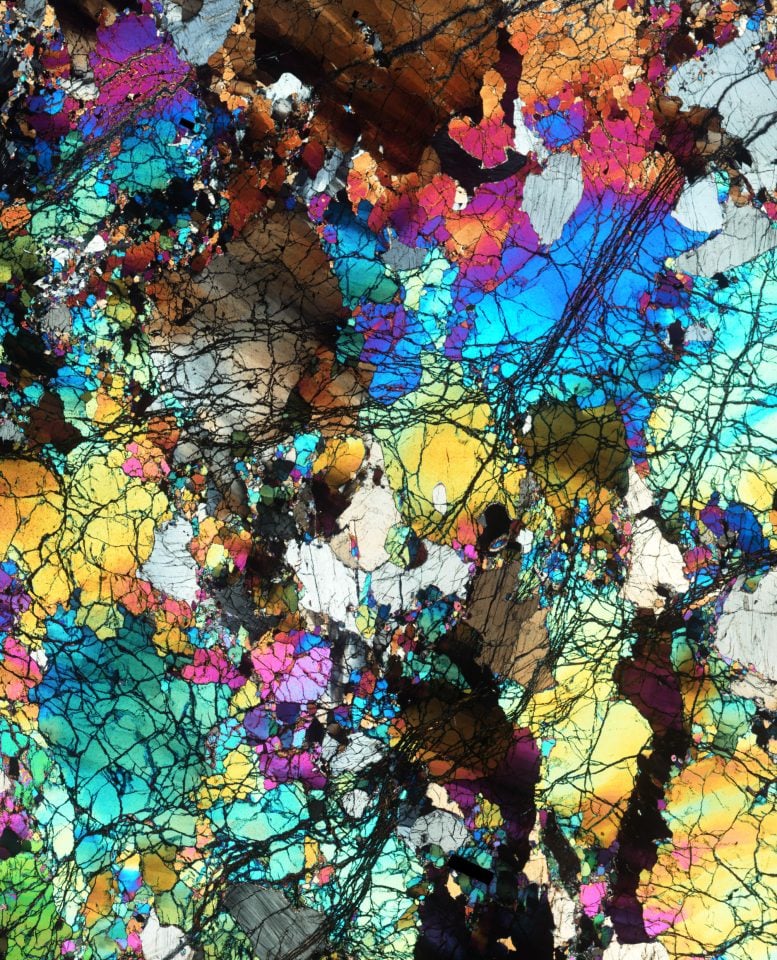
Η προέλευση της ζωής είναι ένα επιστημονικό μυστήριο που απασχολεί τους ερευνητές εδώ και αιώνες. Ενώ υπάρχουν πολλές θεωρίες για το πώς ξεκίνησε η ζωή στη Γη, η ακριβής διαδικασία παραμένει άγνωστη.
Οι ερευνητές χρησιμοποίησαν εργαστηριακές προσομοιώσεις για να αναδημιουργήσουν τις συνθήκες της πρώιμης Γης και ανακάλυψαν ότι η εξέλιξη των αρχαίων πρωτεϊνών σε όλες τις μορφές ζωής στον πλανήτη, συμπεριλαμβανομένων των φυτών, των ζώων και των ανθρώπων, δεν θα ήταν δυνατή χωρίς ταυτοποίηση.[{” attribute=””>amino acids.
The discovery of the role that amino acids played in shaping the genetic code of ancient microorganisms sheds new light on the age-old mystery of the origin of life on Earth.
“You see the same amino acids in every organism, from humans to bacteria to archaea, and that’s because all things on Earth are connected through this tree of life that has an origin, an organism that was the ancestor to all living things,” said Stephen Fried, a Johns Hopkins chemist who co-led the research with scientists at Charles University in the Czech Republic. “We’re describing the events that shaped why that ancestor got the amino acids that it did.”
The findings are newly published in the Journal of the American Chemical Society.
In the lab, the researchers mimicked primordial protein synthesis of 4 billion years ago by using an alternative set of amino acids that were highly abundant before life arose on Earth.
They found ancient organic compounds integrated the amino acids best suited for protein folding into their biochemistry. In other words, life thrived on Earth not just because some amino acids were available and easy to make in ancient habitats but because some of them were especially good at helping proteins adopt specific shapes to perform crucial functions.
“Protein folding was basically allowing us to do evolution before there was even life on our planet,” Fried said. “You could have evolution before you had biology, you could have natural selection for the chemicals that are useful for life even before there was DNA.”
Even though the primordial Earth had hundreds of amino acids, all living things use the same 20 of these compounds. Fried calls those compounds “canonical.” But science has struggled to pinpoint what’s so special—if anything—about those 20 amino acids.
In its first billion years, Earth’s atmosphere consisted of an assortment of gases like ammonia and carbon dioxide that reacted with high levels of ultraviolet radiation to concoct some of the simpler canonical amino acids. Others arrived via special delivery by meteorites, which introduced a mixed bag of ingredients that helped life on Earth complete a set of 10 “early” amino acids.
How the rest came to be is an open question that Fried’s team is trying to answer with the new research, especially because those space rocks brought much more than the “modern” amino acids.
“We’re trying to find out what was so special about our canonical amino acids,” Fried said. “Were they selected for any particular reason?”
Scientists estimate Earth is 4.6 billion years old, and that DNA, proteins, and other molecules didn’t begin to form simple organisms until 3.8 billion years ago. The new research offers new clues into the mystery of what happened during the time in between.
“To have evolution in the Darwinian sense, you need to have this whole sophisticated way of turning genetic molecules like DNA and RNA into proteins. But replicating DNA also requires proteins, so we have a chicken-and-egg problem,” Fried said. “Our research shows that nature could have selected for building blocks with useful properties before Darwinian evolution.”
Scientists have spotted amino acids in asteroids far from Earth, suggesting those compounds are ubiquitous in other corners of the universe. That’s why Fried thinks the new research could also have implications for the possibility of finding life beyond Earth.
“The universe seems to love amino acids,” Fried said. “Maybe if we found life on a different planet, it wouldn’t be that different.”
Reference: “Early Selection of the Amino Acid Alphabet Was Adaptively Shaped by Biophysical Constraints of Foldability” by Mikhail Makarov, Alma C. Sanchez Rocha, Robin Krystufek, Ivan Cherepashuk, Volha Dzmitruk, Tatsiana Charnavets, Anneliese M. Faustino, Michal Lebl, Kosuke Fujishima, Stephen D. Fried and Klara Hlouchova, 24 February 2023, Journal of the American Chemical Society.
DOI: 10.1021/jacs.2c12987
The study was funded by the Human Frontier Science Program and the NIH Director’s New Innovator Award.

“Ερασιτέχνης διοργανωτής. Εξαιρετικά ταπεινός web maven. Ειδικός κοινωνικών μέσων Wannabe. Δημιουργός. Thinker.”



